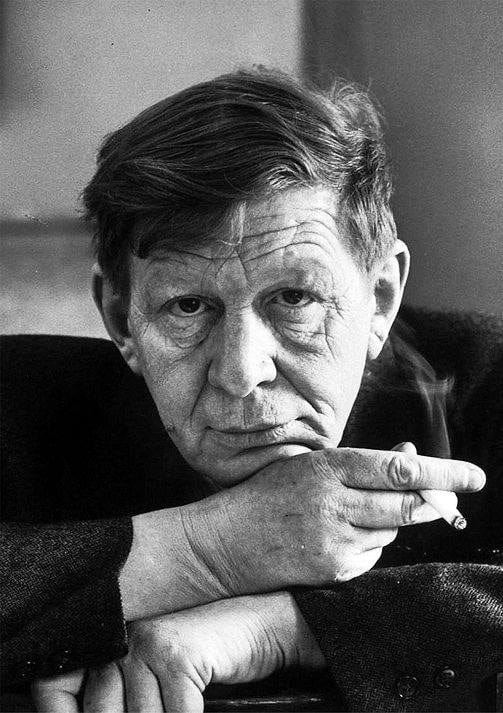W.H. Auden: "You have got to have a marvelous sense of line endings."
Q: "What makes something a prose poem?" A. "It is written out in prose."
You once said that you thought Dante, Langland, and Pope were the three major influences and most important poetic figures for you. Would you please comment on that?
They vary at different times. Pope has always been, but at the moment I would say that my two chief models are Horace and the classical Goethe of the middle period - "Metamorphosis of Plants" and that sort of thing. I have always loved Horace, but when I was young, I knew I couldn't use him yet. Now I can. This is a funny thing that happens with writing: You can get an idea for a poem that you have to turn down for one or two reasons: I am sorry, no longer; or I am sorry, not yet.
What about free verse?
There are a few people like D.H. Lawrence, who have to write in free verse. I think they are a minority. Anyone who has played a game, whether it is bridge or baseball, knows you can't play games without rules. You can make the rules what you like, but your whole fun and freedom come from working within these. Why should poetry be any different? One of the things you so often notice when looking at a lot of poems in free verse is that you can't tell one author from another, far from thinking one more original. With rules it is so much more fun because they impose some kind of metrical quality, and they often suggest all kinds of things you haven't thought of before. It does free one a bit from the fetters of oneself.
Don't you think one has to work harder to make good free verse?
No, there are very few people who do it. You have got to have a marvelous sense of line endings. So often I can see no reason why the thing isn't printed as a prose poem. This you do feel with Lawrence; the lines end exactly right.
What makes something a prose poem?
It is written out in prose. An obvious example is the Illuminations of Rimbaud, a very clear example of a prose poem which is written out as prose and separated by paragraphs but is undoubtedly poetry.
Is there any one French poet of that period you like a lot?
Rimbaud I like. Mallarmé I am not very fond of. But then I am rather a Francophile. I think it is the only language which the sixteenth-century humanists managed to ruin. They tried with English and failed; they tried with Italian and failed; but I think they did succeed with French.
For the rest, go here.





Glad to see this. It’s timely for the course I’m taking via zoom with Ryan Wilson Mastering poetic sound and meter. We’re just now pondering whether prose poems are actually poems